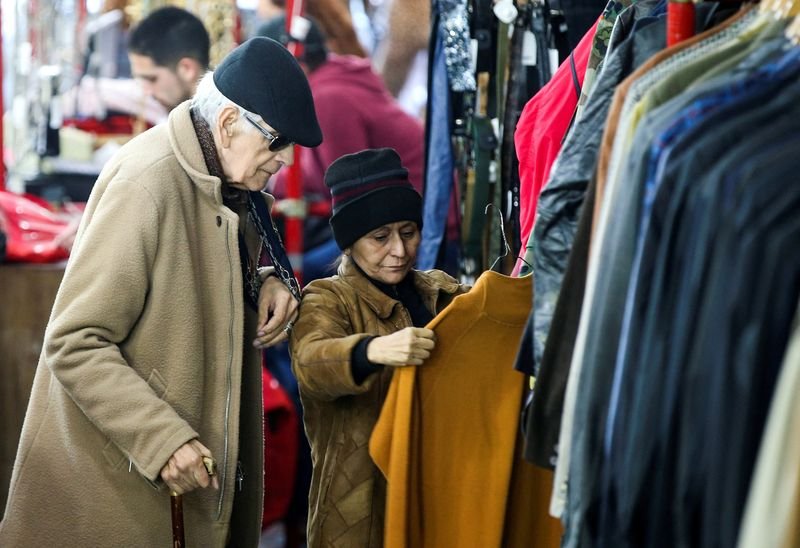
With inflation at 140% and rising, Argentines are struggling to make ends meet. Many are turning to second-hand clothing markets to find affordable bargains and earn extra cash from selling old garments. The country is facing its worst crisis in decades with two-fifths of people living in poverty and a looming recession that is shaking up Argentina’s presidential election run-off next Sunday. Economic troubles have propelled a radical outsider, Javier Milei, to the forefront in polls ahead of economy minister Sergio Massa, who is the candidate of the ruling Peronist coalition. His failure to rein in rising prices has hurt his bid for the presidency.
Prices have shot up astronomically, with new jeans costing more than double the price from a year ago, representing over one-third of Argentina’s monthly minimum wage. Inflation has reached an annualized rate of 138% and is set to rise further when authorities release official data for October on Monday. Experts attribute the high inflation to money printing and a lack of confidence in the local peso. Inflation has accelerated over the past year and is now the highest it has been since 1991.
Many Argentines are struggling to make ends meet. Beatriz Lauricio, a 62-year-old semi-retired teacher, and her husband, a bus company employee, sell old garments on weekends at a clothing fair to earn extra cash. The couple is considered middle-class but barely making it. They rely on the fair as a daily necessity to make ends meet. María Silvina Perasso, the organizer of the clothing fair in Tigre, on the outskirts of Buenos Aires, said many people shop there because prices have risen far faster than salaries. Local monthly minimum wage is 132,000 pesos, $377 at the official exchange rate but half that at real street rates due to capital controls.
María Teresa Ortiz, a 68-year-old retiree, lives off her pension and from casual sewing work, where she earns 400 pesos an hour, officially about a dollar. She goes to the fair to be able to afford clothes she otherwise couldn’t buy. “We simply can’t buy new things. You can’t buy new sneakers, you can’t buy new flip-flops, you can’t buy new jeans, you can’t buy a shirt or a T-shirt either. So you have to look for them at the fairs,” she said.